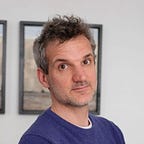Nietzsche: Finding Our Superhumanity
If science made God irrelevant, we can only find purpose in ourselves
“God is dead. God remains dead. And we have killed him.”
So wrote Nietzsche in his book The Joyful Science. Even today it feels shocking to read.
It’s not to say that God does not exist, but that we killed God. What could he possibly mean by this?
The philosopher did not mean that a deity had actually died but rather that our idea of God had been killed off by the actions of our civilisation.
Nietzsche was an atheist, but the statement is by no means an atheist statement. You can still believe in God or be agnostic and understand that God has been displaced from His central place in our civilisation.
Nietzsche was simply observing that the consquence of the age of enlightenment was the terminal diminishment of God. In previous eras, where there was no explanation there was God, but the enlightenment gave us a lot of explanations.
God was no longer the official underlying cause for morality, value or order in the universe. The laws of nature were governed by physical laws, explainable by science. Morality, justice and governance were no longer thought to be divinely inspired, but based on reason. There was no longer…
